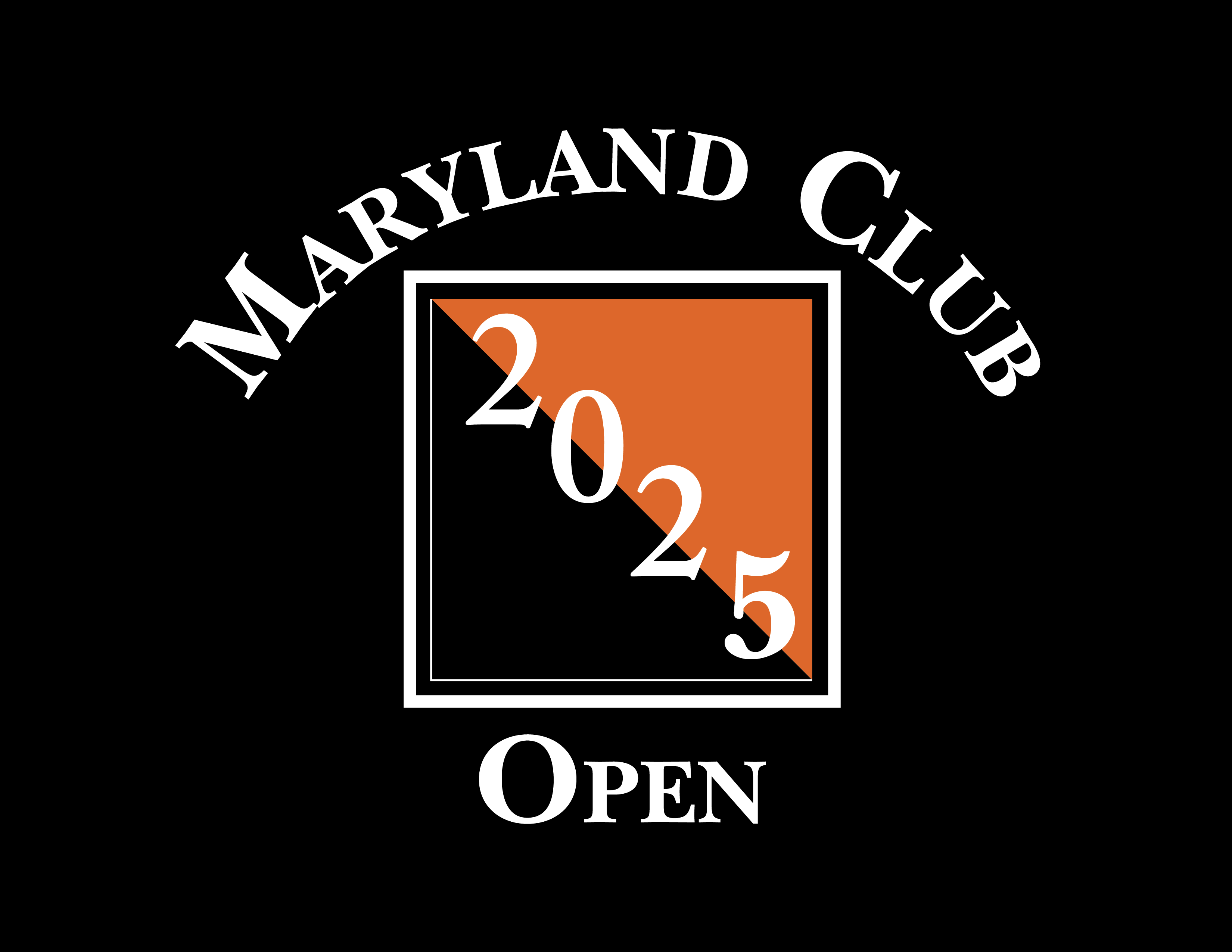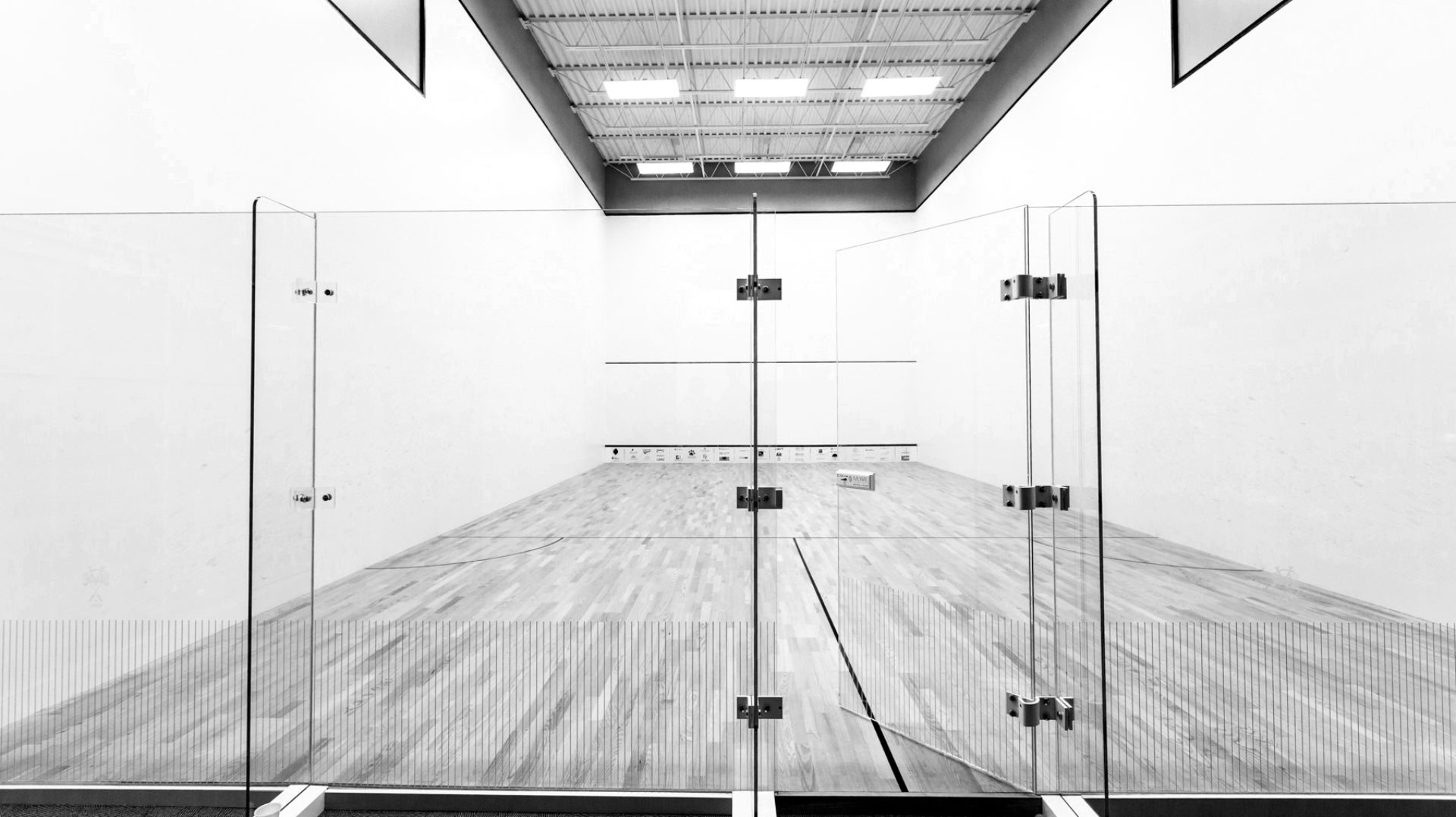This weekend will mark the 11th edition of the Maryland Club Open, making it the sixth longest-tenured event on the North American Doubles tour, and quite possibly the one that has seen the greatest number of changes and unexpected outcomes of any on the circuit during that considerable time span. Significant rivalries have either begun or had important chapters written, established powerhouses have been stopped dead in their tracks and budding stars have announced themselves, all within the confines of this host venue that has for so long been the flagship location of Maryland squash. Nearly every time this tournament takes place, something novel and/or noteworthy can be counted on to occur, often with lasting effects (given its October/November placement on the schedule) on the remainder of a given pro-doubles season or on the competitive dynamics of the pro doubles tour as a whole.
It is a revealing sign of how change-prone the results in this tournament have been over the years that, although Ben Gould and Damien Mudge, whose first tournament as teammates came in the 2010 version of this event, have won this championship in each of the last four years, the runners-up over that period have been the theoretical maximum of four different teams and eight different players. John Russell and Preston Quick in 2010 (four years after they similarly attained the final round in their own debut as partners in 2006), Matt Jenson and Clive Leach in 2011, Manek Mathur and Yvain Badan in 2012 and Imran Khan and Mark Chaloner in 2013 have been the respective second-place finishers during these years — no other stop of the SDA tour has had that much turnover in the silver-medal department over that stretch.
Either Mudge or Gould have made it to the winner’s circle in every Maryland Club Open in the event’s history, save for the 2007 edition, when Chris Walker and Clive Leach defeated first Mudge and Viktor Berg in the semis and then Gould and Paul Price in the final, in what turned out to be the last time until the end of the 2009-10 season (34 ranking ISDA events later) that a team other than either Price/Gould or Mudge/Berg wound up holding the championship trophy at the end of an ISDA event. Mudge, the pro doubles tour’s “all-time leading scorer” as the player who has recorded the most tournament wins during the 2000’s, also holds the record for the most Maryland Club Open titles, with seven (the first three with Gary Waite and, as noted, the last four with Gould), and he along with Gould (a six-time winner), Quick, Walker, Willie Hosey, Berg and Leach are the only participants in the 2013 tourney who also played in the inaugural Maryland Club Open a full decade earlier on Halloween weekend in 2003.
That first tournament was rocked by some early fireworks, especially in the earliest main-draw match Friday night, in which unheralded qualifiers Alex Pavulans and Chris Deratnay unceremoniously (and in straight games) ousted the heavily-favored Leach/Blair Horler pairing, whose overpowering performance at the season-culminating Kellner Cup the previous spring (where they had slugged their way to victory over reigning No. 1’s Waite and Mudge in the final) had marked them as the team to beat entering that 2003-04 season. Leach and Horler never fully regained their bravado, and a few months later Horler suffered a serious knee injury that ended their time as partners. In the years that followed his 2003 appearance with Horler, Leach would play the Maryland Club Open with Hosey in 2004, with Michael Pirnak in 2005, with Scott Butcher in 2006, with Walker in their triumphant march in 2007 and with Jenson in 2008 (six partners in six years). Price, his partner in the last two editions of thistournament, recently moved permanently back to his native Australia, so Leach’s well-established versatility will be put to the test yet again this weekend.
The tournament itself has evolved and grown impressively and on multiple fronts during the years since its inception, a tribute both to an enormously doubles-passionate club membership, which has from the outset both supported the event financially and populated a sizable number of pro-am draws, and more specifically to Doug Hoffberger, the host club’s Squash Committee chairman from 2003-2009 and the Tournament Chair from 2003-20013; Stewart Shettle, who succeeded Hoffberger as Squash Committee Chairman in 2009 and has held that position ever since; and Andrew Cordova, the host club’s head professional since 2000 after a prior six-year stint at the Baltimore Country Club, who was inducted into the Maryland Squash Hall Of Fame in April 2011 in recognition of his on-court competitive achievements, which include winning a modern-era record 10 Maryland State Open Level doubles titles (the last of them just this past spring with Dave Rosen as his left-wall partner) and a trio of victorious runs in the prestigious Baltimore Invitational Doubles Squash (BIDS) tournament.
Cordova was ranked as high as No. 18 on the circuit in 2007, and, in his capacity as SDA Director Of Development during the 2012-13 and 2013-14 seasons, his efforts resulted in the addition of a slew of new sites and a doubling of both membership and overall purse (to more than a half-million dollars last season) over that two-year period. Hoping to elevate his skills in this latter area to an even higher level, Cordova this autumn began taking online courses offered by Western Kentucky University in pursuit of a Master of Science degree in Recreation and Sports Administration, with a concentration in Event and Facility Management.
In addition to substantially increasing the purse and overall budget (for the pro-am flights as well as the Pro draw), the Maryland Club has always been receptive to changes and format refinements — in the 2002 BIDS event, for example, there was a hardball singles draw, whose final-match between Mudge and Waite had spectators thronging the bleacher area and standing five-deep — and this positive attitude has led to several innovations. In 2005, for example, and for the first time in the six-year history of the ISDA, the tournament paid the members of teams that were eliminated in the qualifying rounds, a reflection of Cordova’s wish to enhance the club’s reputation for hosting a player-friendly event, and of his belief that all professional players competing in a tournament of this stature deserve to be paid for their efforts. The hope (which ultimately did not materialize) at the time was that this practice would catch on at other ISDA sites as well.
In 2008, responding to the success that inner-city youth-enrichment education/squash organizations were having across the country, the Maryland Club Open partnered with the local Urban Squash program, Baltimore SquashWise, providing further incentive for member support for the Tournament and leading to a donation of several thousand dollars to the organization. Then, after a one-year hiatus in 2009 so that the Baltimore squash community could marshal its efforts to the U. S. National Doubles tournament that Charm City would be hosting in March 2010, the tournament resumed in dramatic fashion when it hosted not only the doubles tournament but also the inaugural U. S. leg of the Legends Of Squash tour that had been co-founded by John Nimick and Peter Nicol earlier that year.
Six of the former stars of the PSA singles circuit, namely Simon Parke, Jonathon Power, David Evans, Martin Heath, John White and Nicol himself, competed in two three-player Pools, with the respective winners then contesting the final. Nicol and White met in the final both that year and the next, with split results, and both years the Legends players seemed to spend much of their between-matches time in the doubles gallery following the action — indeed, one player tarried a little longer than he should have and almost missed his flight back to Europe. In 2010 as well, the Maryland Club Open began housing the tour players in hotels, a policy that has continued ever since and will finally be rewarded in its SDA ranking status this season due to a rules change passed over the summer in accordance with which “hospitality stars” augment the actual purse, resulting in Platinum status, normally reserved for $40,000 events, being given to this year’s $30,000 tournament.
Throughout the years as well, the club’s squash facilities have grown along with the tournament itself. Realizing the need for upgrading its facilities to respond to the growth of the overall program, the club devoted substantial capital expenditures to constructing a bar near the courts several years ago, expanding the gallery of the now glass-back-wall upper doubles court and replacing the painted floor on the lower court with a new natural-wood sprung floor with excellent traction and plenty of “give,” resulting in a much more enjoyable squash experience not only during the four-day tournament weekend but year-round.
The 2012 Maryland Club Open constituted the first-ever tournament for the newly-formed Squash Doubles Association (SDA) and the tour was christened that weekend in memorable fashion, with all but one of the seven main-draw matches either going to at least a fourth game or having one or more 15-14 tallies, as was also the case in five of the seven matches contested in the qualifying rounds. Two of the quarterfinal matches (Jenson/Quick over Russell/White and Price/Leach over Jonny Smith and Greg Park) wound up with 15-13 fifth-game tallies, and the final went to a fifth game as well before Gould and Mudge pulled away from mid-2000’s Trinity College teammates Mathur and Badan. Last year, Khan and Chaloner won a pair of five-gamers (over Price/Leach and Walker/Raj Nanda) en route to the final, and two of the other quarterfinals went the five-game limit as well. If history is any guide, the 2014 Maryland Club Open this coming weekend figures to provide more of the same in terms of both the tournament itself and its impact on the remainder of the 2014-15 SDA season.

